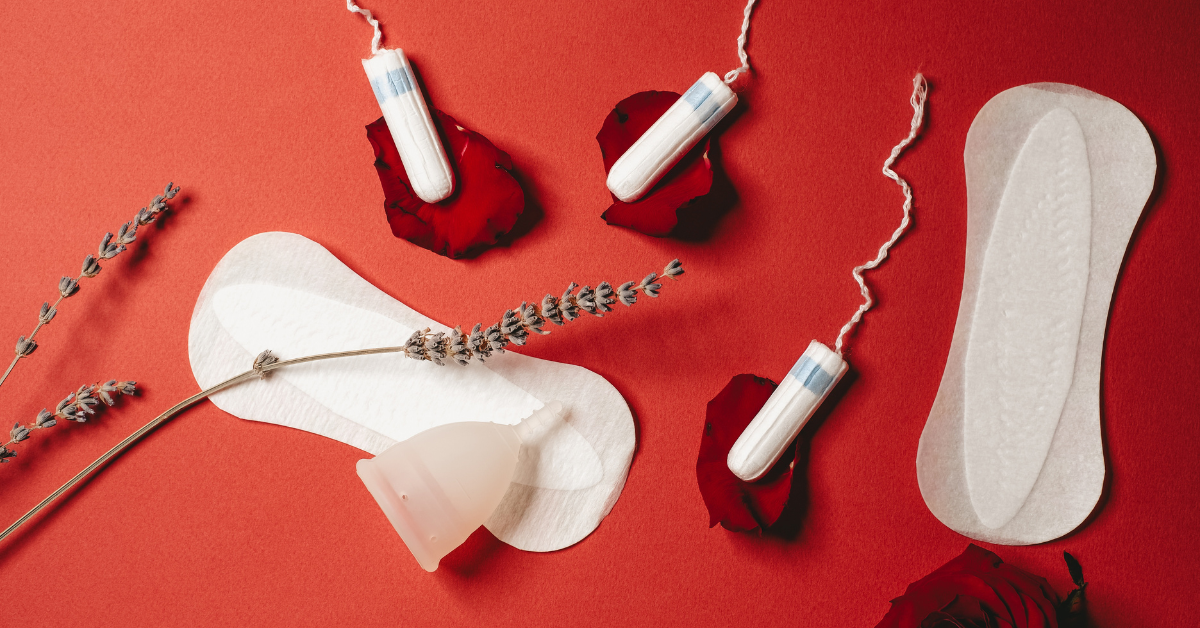
Recently, deprived of my sanity whilst cramming for mid-semester exams, I found myself in the Lawbry bathroom. There I sat, my eyes wandering to a sticker on the door in front of me; ‘bins are for the disposal of feminine hygiene items only.’ At first (perhaps I’ll blame my temporary stress-induced insanity), I accepted it without a second thought. After all, I had seen this language numerous times before. I mean, it’s the language we have been conditioned to accept. It’s the terminology we see in public bathrooms and even has a dedicated aisle in our grocery stores. Why would it be wrong to call it ‘feminine hygiene items?’ Well, buckle in; here’s why we need to ditch ‘feminine hygiene’ and why UQ isn’t doing enough to end period stigma.
Employing the term ‘feminine hygiene’ to discuss period products is problematic for a multitude of reasons. For one, it delegitimises and stigmatises gender identity. By employing the terminology of feminine, it naturally limits inclusion to cisgender women. While it is true that many cisgender women do get their periods, the scope of people in our community who menstruate is far more expansive, including trans men and non-binary people, for example, who would likely not identify as feminine. Employing ‘feminine’ as the default descriptor for period products alienates a broad group of people and their experiences.
Further to this, we have trans women and cisgender women in our community who may not get their periods. As the terminology inextricably links periods with femininity, it denotes that the absence of the period is the absence of femineity and vice versa. Obviously, we have evolved past the belief that gendered constructs of femininity define a person.
Also, the way we currently refer to periods perpetuates the pervasive period stigma. Often, the word ‘feminine’ is accompanied by ‘hygiene’ or ‘sanitary’. This language construes that periods, rather than being a natural biological function, are unhygienic and unsanitary. We have been habituated to accept this language as apt to talk about periods, but all it does is stigmatise and shame those who menstruate. There is nothing shameful or dirty about periods, but we cannot talk about them candidly and widely. The lexicon only propagates this stigma.
Transcending even the language used to refer to menstruation, the behaviours and rituals that broader society engages with promotes period stigma. Period product advertisements broadcast to menstruators that the best products are leak-proof and discrete. This messaging prompts us to believe that hiding any evidence of menses is what is supposed to happen.
Discourse about periods in broader society is also evidence of the stigma.
In the few and far between times that periods are discussed, we employ a range of euphemisms for them- It’s that time of the month again? Aunt Flo. Lady Business, so on and so on. Once again, these phrases prompt menstruators to feel shame over their periods and encourage them to hide menses. But also, many of these euphemisms are highly gender-coded and exclude a substantial group of those who menstruate.
There is also an inextricable link between period stigma and sex. Those who menstruate often feel they have to avoid sex when menstruating to avoid discussing the topic with their partners. Many have also had negative experiences with period sex where their partner made them feel dirty. This behaviour and lack of open dialogue about periods further intensifies the period stigma.
As is abundantly clear, those who menstruate are told that their blood is a social and sexual abomination that should be banished to the undergrounds of hell. No, not really, but it should be hastily hidden away for fear of being unhygienic and uncouth.
In response to the shameful discourse surrounding periods, people who menstruate often develop complicated and unhealthy relationships with sex, social status, and health. Menstruators are less likely to seek health advice for their periods in fear of the stigma that has been waged against them.
So, you may be wondering, where did the period stigma even come from? Well, long story short, men and capitalism (as is usually the case). Around the 1920s, new technology emerged that aimed to make menstruation a ‘civilised’ process that was both ‘clean’ and ‘discrete.’ Sound familiar? Following the resounding commercial success of these products, period products found their way into a market of their own: the feminine hygiene market. The menstrual market has only become more and more lucrative as time has gone by. Thanks to the competitive tenants of capitalism, menstruators now have a plethora of products to choose from to hide their menses. Tampons, menstrual cups, pads, period undies, sponges- the list goes on and on, with each claiming to be more hygienic and discrete than the last. Those with periods even have access to an innovative product created by two men called the Pinky Glove, which claims to be the most hygienic way to remove a tampon because apparently, that was an issue. Anyway, the menstrual market began as a way for those with periods to get ripped off and continues to be so, all in the name of hiding the shame of menses.
This market has also led to widespread period poverty. With taxed products becoming the norm for menstruators to deal with their periods, many with low incomes cannot afford these products. Those who cannot obtain products often have to resort to using clothes and other such methods in place of products. Usually, this is unsafe and can lead to toxic shock syndrome and other health implications. Moreover, many do not have access to private or safe bathrooms when they get their periods. Consequently, the socioeconomic status of menstruators can often be an isolating practise, furthering the period stigma which can have dangerous consequences to health.
So, what does it all mean? Is it all doom and gloom for those who menstruate? Fortunately, no. As time has gone on, slowly, we see governments turn their backs on the lexicon of the past, which stigmatised periods, and towards inclusivity and pride. We are also seeing a growing awareness of the socioeconomic impacts that periods have on women. Scotland, for example, was the first country in the world to introduce free period products to those who cannot obtain them. We also see a maturation of the harmful rhetoric regarding periods. The New Zealand grocery store chain, Countdown, has done away with the euphemistic and damaging language of sanitary and hygienic in the advertisement of period products.
While these changes are promising, if we want a community where all those who menstruate feel accepted and safe, we must ditch the harmful language. UQ, cognisant that it is accommodating students and staff who menstruate but may not fit into the normative cis-gender construct of femininity, needs to do better. In continuing to feature this language in our bathrooms and not speaking out against it, UQ is passively contributing to the problem. It is high time that something is done to fight against this blatant display of gendered ideological warfare against menstruators. So UQ, be better, banish the terminology from your bathrooms, and be a player in demolishing the period stigma.
Views: 690
